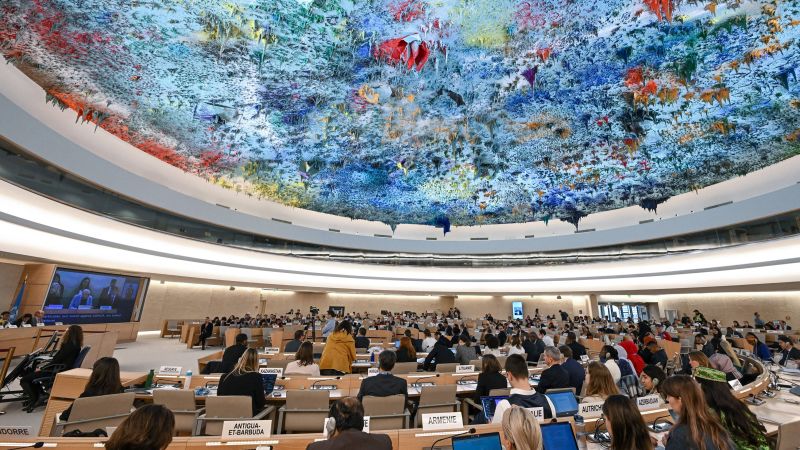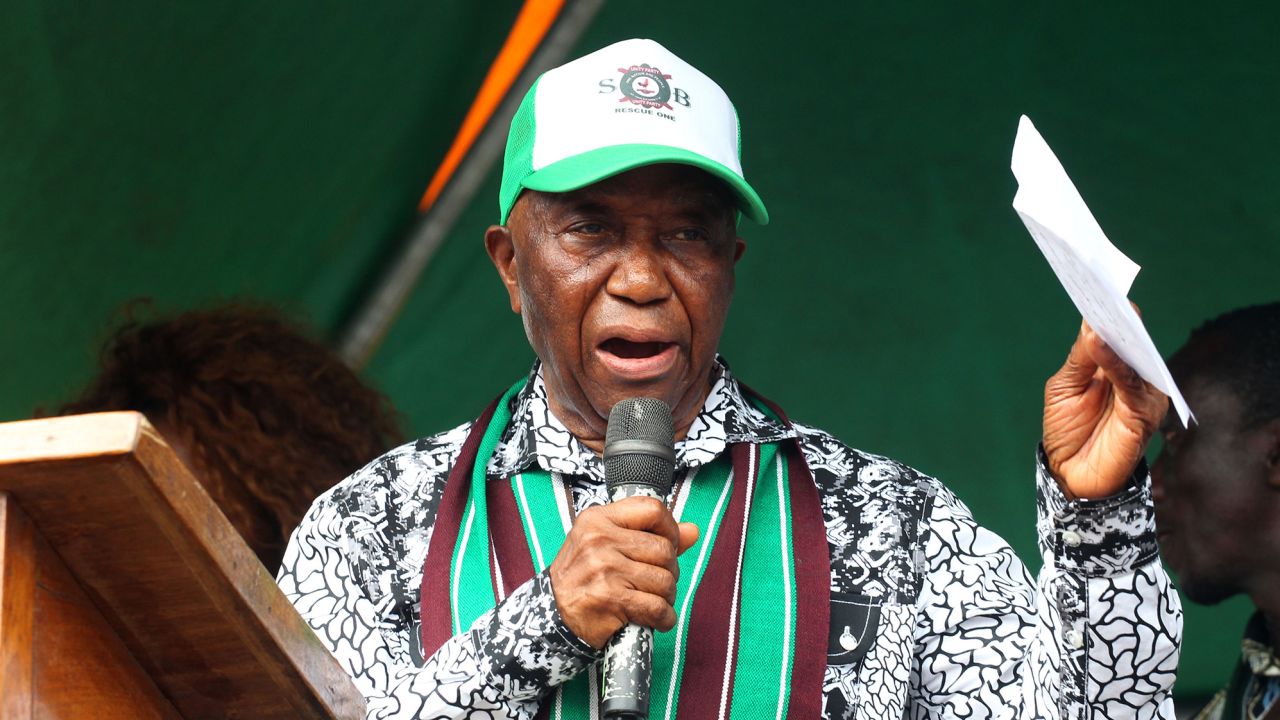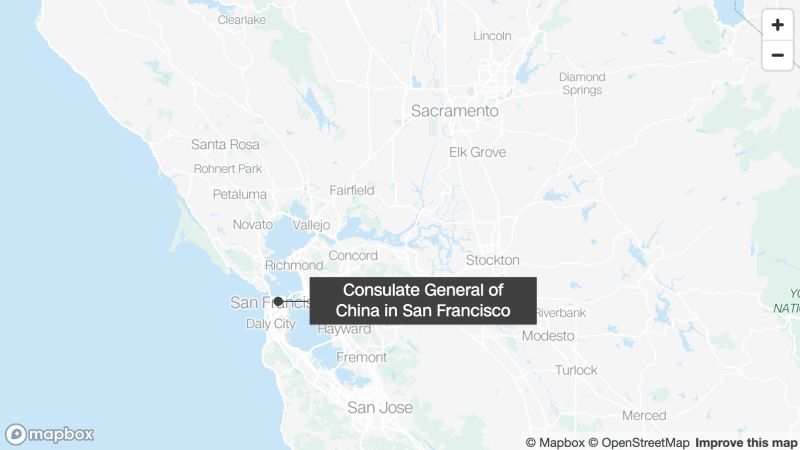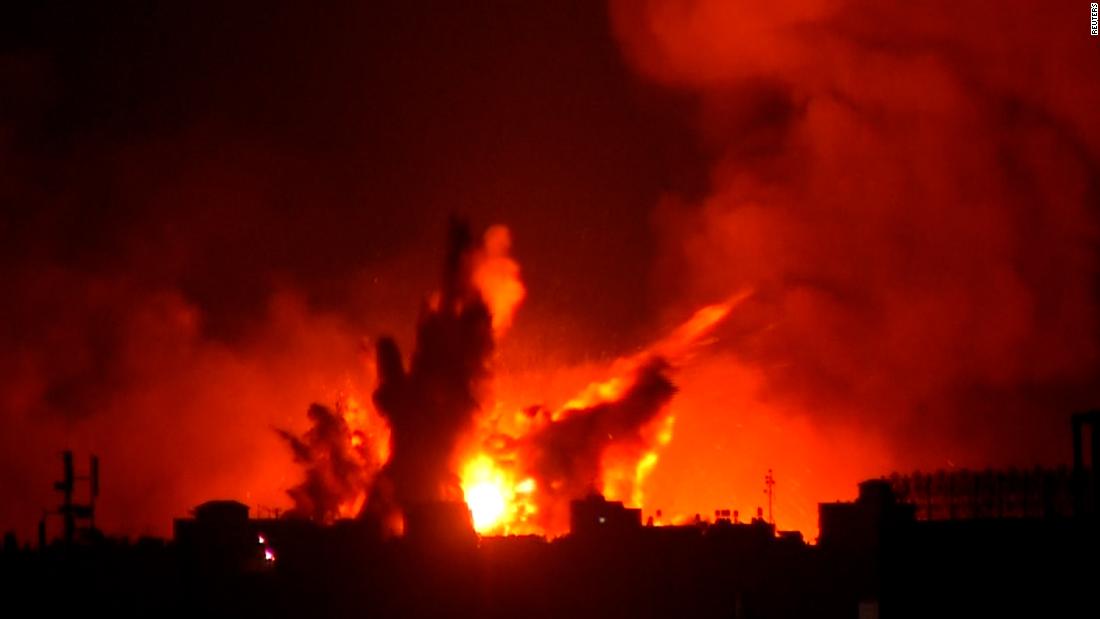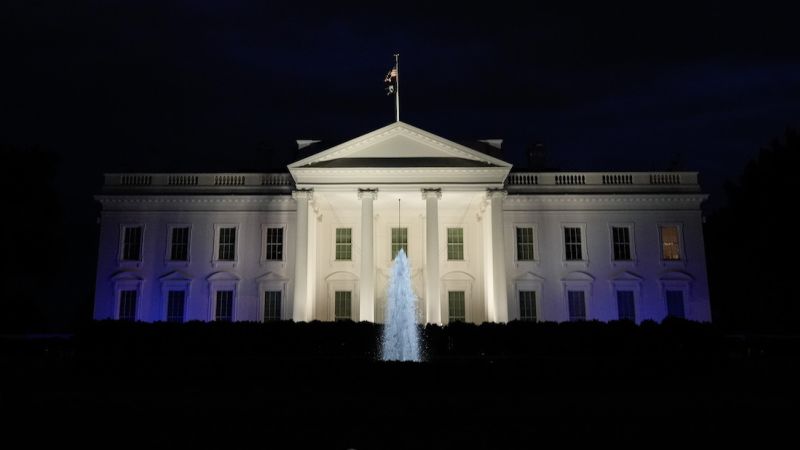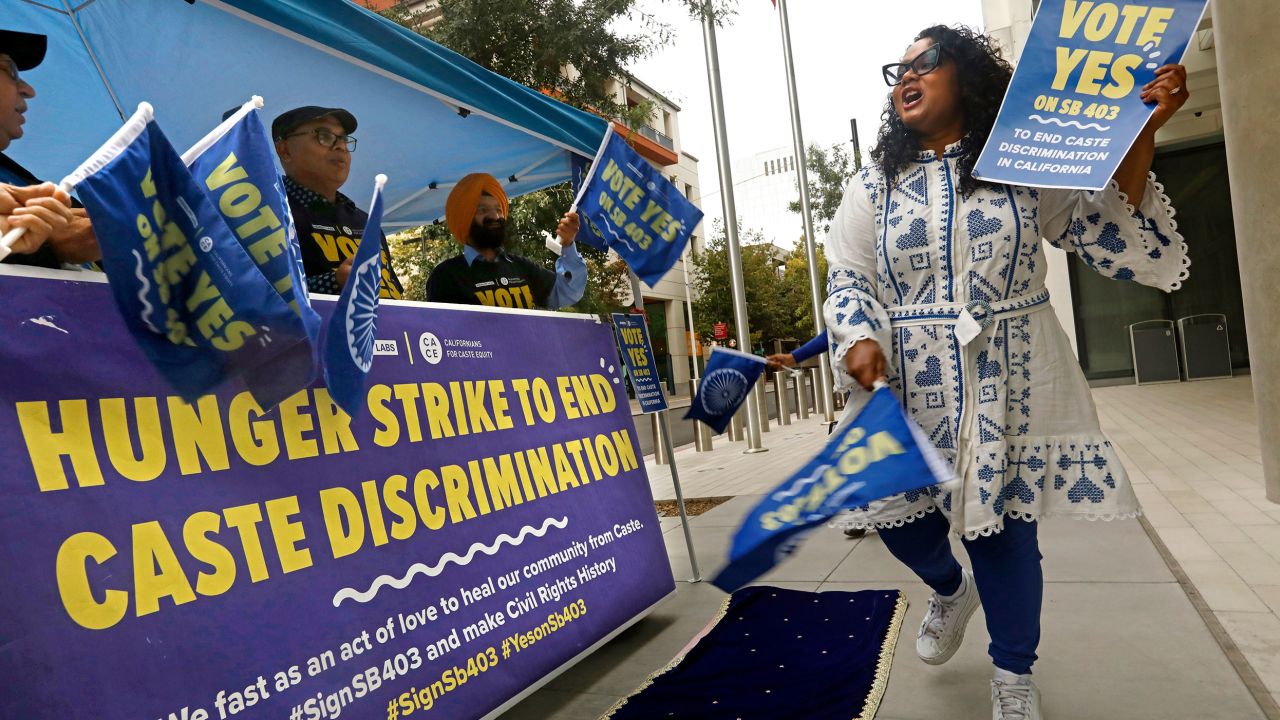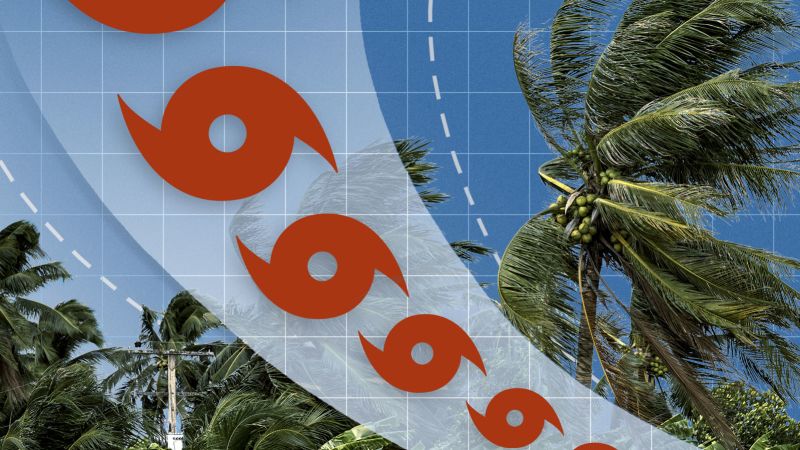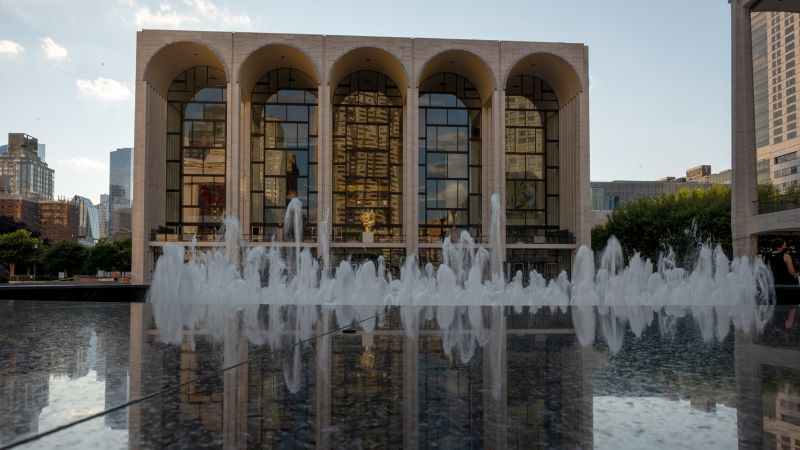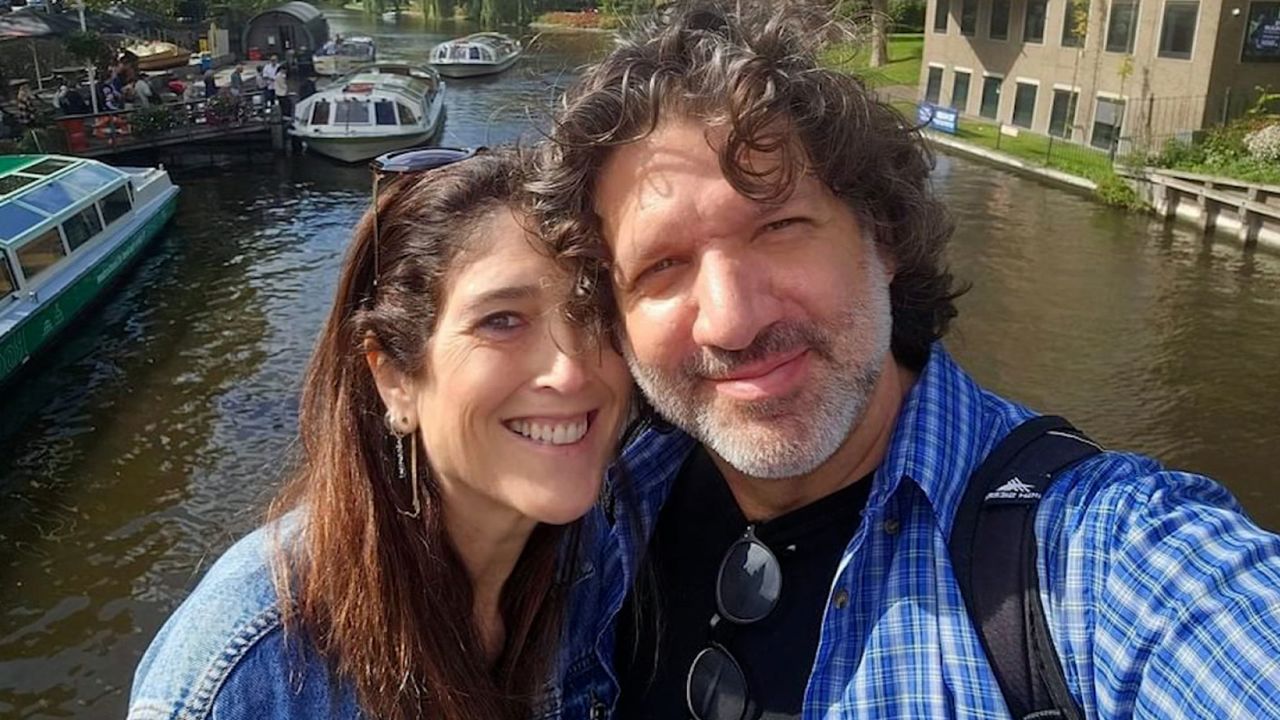CNN
—
Liberians are voting Tuesday in high-stakes presidential and parliamentary elections – the first since the 2018 exit of a UN mission that kept the peace for more than a decade in a country scarred by two devastating civil wars.
As well as the 14-year civil war that had claimed 250,000 lives by the time it ended in 2003, Liberia has grappled with epidemics, including the Covid pandemic and a deadly Ebola outbreak that killed more than 4,000 people in 2014.
Incumbent President George Weah, a decorated former football star, is seeking reelection for a second six-year term after a tumultuous first tenure tainted by corruption scandals and allegations of mismanagement.
Poverty is rife in Liberia, the World Bank says, further estimating that half of the country’s population survives on less than $2 a day.
More than 60% of Liberia’s 5.4 million people are below the age of 25, but unemployment is widespread among the country’s youth, some of whom were former child soldiers in the civil war.
Nineteen candidates are seeking to unseat Weah, who belongs to the Coalition for Democratic Change (CDC) party, but he faces a contentious rematch with former Vice President Joseph Boakai of the main opposition Unity Party (UP).
Tensions flared between supporters of the two parties ahead of the polls, Liberia’s police said on Facebook. This led to a “loss of lives and the destruction of properties,” the country’s electoral commission stated.
A spokesperson for the UN Human Rights Office in Liberia, Seif Magango, said at least two people died and 20 others were injured in the clashes.
Weah, the only African to have won football’s most prestigious Ballon d’Or award, clinched more than 60% of the ballots to beat Boakai in a runoff election the last time the two met at the polls in 2017.
Neither Weah, 57, nor Boakai, who turns 79 next month managed to achieve 50% of the votes in the first round of voting.
Boakai conceded defeat after an unsuccessful legal challenge.
Boakai told CNN that his young supporters are now desperate for change.
“Liberians want a change. The youths on the street are telling me they made a mistake (voting Weah in 2017) and want to correct the mistake … They are saying everywhere I go, ‘forgive us, we made a mistake,’” he said.
“This time around, Weah is quite aware that his popularity has dwindled and that he has no chance in this election,” Boakai added.
Around 2.4 million Liberians, mostly young people are registered to vote in the election, which analysts say is a two-horse race between Weah and Boakai.
“Many view Boakai as the next president of the country, who will rescue Liberians from the hands of President Weah, who they claim has failed during his six-year rule,” said Joel Cholo Brooks, the publisher of Global News Network Liberia.
“But for supporters of Weah, (they believe) he should be reelected to complete his many uncompleted projects.”
Ahead of the polls, Weah defended his administration’s performance, telling supporters at a rally “that his development record in the first six years of his presidency is unmatched to his predecessors,” according to a presidential statement.
He touted achievements in infrastructure and noted his government’s introduction of tuition-free education at Liberia’s public universities.
“I am the best among them,” Weah said of his opponents at another gathering last month. “I am a developer, and this is why I am developing the country,” he added as he appealed for votes.
Weah came under criticism last year after spending nearly two months overseas, during which he traveled to Qatar to watch his son, an American national, play for the United States in the FIFA World Cup.
Liberia’s finance minister, Samuel Tweah, said at the time that the president was entitled to a daily allowance of $2,000 during his trip but did not disclose the total cost of Weah’s 48-day tour – described by local media as the longest embarked upon by a Liberian leader in recent years.
“From the inception, they’ve been a corrupt government and everything they do is for personal interest,” alleged Boakai, Weah’s main opponent, who also told CNN of his plans to cut government spending and tackle mismanagement of lean public finances if elected.
Weah’s campaign manager, Eugene Nagbe, told CNN President Weah has made “systemic efforts to eliminate corruption from institutions in Liberia.”
“The president has constituted the Liberia Anti-Corruption Commission and given it autonomous power to prosecute those who will be found culpable of corruption,” Nagbe added.
Analysts are not convinced Weah has done enough to dispel corruption hanging over his government.
“The president has failed to fight corruption,” said Brooks, who added that “many of his officials who were accused of corruption are yet to be prosecuted.”
Last year, three close allies of Weah, including his chief of staff, Nathaniel McGill, were sanctioned by the US over what Washington said was “their involvement in ongoing public corruption in Liberia.”
McGill, Sayma Syrenius Cephus, Liberia’s chief prosecutor at the time, and Bill Twehway, who headed the country’s National Port Authority, were accused by the US Treasury Department of bribery, diversion of state funds, and manipulation of government contracts for personal gain.
The trio resigned their positions but no charges were brought against them, despite calls for their prosecution.
“Two of those who were sanctioned by the US government for massive corruption have been welcomed by the president by allowing them to contest for the Liberian parliament,” said Brooks.
McGill and Twehway are on the ballot for the country’s senate after being nominated by Weah’s CDC party.
Weah’s campaign manager told CNN no Liberian law prevents them from running from office, adding that the government was awaiting evidence from US to enable prosecutions.
Liberia’s Corruption Perception Index score has plummeted since Weah took office in 2018, dropping 22 points in five years to sit at 142. The index, put together by Transparency International, ranks 180 nations by “the perceived level of public sector corruption.”
“The perception is high … I’m not disputing the fact that we have gone down the table on the TI index … but the reality is that the president has been doing so much to fight corruption,” Nagbe said.
Oscar Bloh, head of ECC, Liberia’s largest election observation group, told CNN this election is different from previous polls in the country.
“This election is very critical compared to previous elections. This is the first time we have transitioned from the use of manual to a biometric voter registration system,” he said.
“This is also the first time that elections will be conducted without external security being provided by the UN mission that was present in Liberia. So security will be on the shoulders of Liberia’s security agencies,” he added.
A UN peacekeeping force, known as UNMIL, exited Liberia in 2018 after completing its mission of “helping to bring peace and stability” to the troubled country.
Bloh also expressed worry that the training of poll officials only began days before the elections.
A spokesman for the electoral commission, Henry Flomo, told CNN, “Everything is in schedule,” as dictated by law.
“Supreme Court says pasting (of the voter roll) should be at least two days to polling day,” Flomo added, but did not explain the reasons for the late training of election officials.
Polls will open at 8:00 a.m. local time Tuesday and close at 6:00 p.m. The election body is required by law to declare a winner no later than two weeks after voting ends.
To be elected, a presidential candidate must win more than 50% of the total votes. If no candidate wins an absolute majority in the first round of voting, a runoff election will be held two weeks later.
Bloh says a runoff is likely this time around.
“It’s unlikely that any of the candidates will win outright during the first round,” he told CNN.

